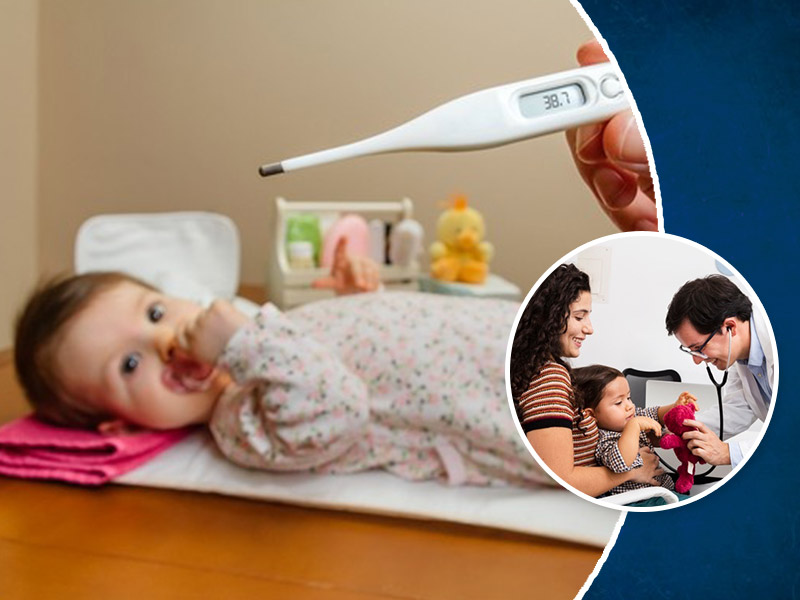Welcoming a newborn is a joyous occasion. However, it can also bring challenges. New parents often worry about their baby’s health. There are many common newborn health issues that can arise. Knowing what these issues are can help parents act quickly and seek the right care. This article covers the top ten common newborn health issues, providing valuable information for new parents.
1. Jaundice in Newborns
Jaundice is one of the most common health issues seen in newborns. It occurs when there is too much bilirubin in the blood. Bilirubin is a yellow substance produced during the breakdown of red blood cells. In newborns, their livers may not be mature enough to process bilirubin effectively. This condition usually appears within the first week of life.
Would you like to see this content of ours Eye Cleaning Tips for Newborns
Signs of jaundice include yellowing of the skin and the whites of the eyes. While mild jaundice is common and often resolves on its own, severe cases may require treatment. Phototherapy is a common treatment where the baby is placed under special lights that help break down bilirubin in the skin.
2. Respiratory Distress Syndrome
Respiratory distress syndrome (RDS) primarily affects premature infants. It occurs because their lungs are not fully developed. This condition results from a lack of surfactant, a substance that helps keep the air sacs in the lungs open. Signs of RDS include rapid breathing, grunting sounds during exhalation, and retractions (where the skin pulls inward around the ribs during inhalation).
Treatment for RDS may involve giving oxygen to help with breathing and administering surfactant directly into the lungs. Most babies with RDS respond well to treatment and improve within a few days.
3. Infections
Newborns are at risk for various infections due to their immature immune systems. Common infections include sepsis, pneumonia, and urinary tract infections (UTIs). Symptoms may vary depending on the type but can include fever, irritability, poor feeding, or lethargy.
If a newborn shows signs of infection, it is essential to seek medical attention immediately. Doctors may perform blood tests or cultures to diagnose infections accurately. Treatment typically involves antibiotics and supportive care.
4. Congenital Heart Defects
Congenital heart defects are problems with the structure of the heart that occur during fetal development. These defects can affect how blood flows through the heart and to the rest of the body. Some common types include ventricular septal defects and atrial septal defects.
Signs of congenital heart defects may include cyanosis (bluish color in lips or fingertips), rapid breathing, fatigue during feeding, or poor weight gain. Diagnosis often happens through physical exams and echocardiograms. Treatment can vary from medication to surgery, depending on the severity of the defect.
5. Gastroesophageal Reflux (GER)
Gastroesophageal reflux happens when stomach contents flow back into the esophagus. This condition is common in infants due to their developing digestive systems. Symptoms may include frequent spit-up, irritability during feedings, and poor weight gain.
Most babies outgrow this condition as their digestive systems mature. For some infants, simple changes like feeding smaller amounts more frequently or keeping them upright after meals can help manage symptoms. In more severe cases, doctors may recommend medications.
6. Hypoglycemia
Hypoglycemia refers to low blood sugar levels in newborns. It can occur for several reasons, including being born to diabetic mothers or having an extended period without feeding after birth. Symptoms may include jitteriness, lethargy, poor feeding, or seizures.
If hypoglycemia is suspected, healthcare providers will typically check blood sugar levels promptly. Treatment involves giving glucose either through an IV or by feeding if the baby can eat normally.
7. Birth Injuries
Birth injuries can happen during labor and delivery due to various factors like prolonged labor or use of forceps or vacuum extraction tools. Common birth injuries include brachial plexus injury (affecting arm movement) and cephalohematoma (bleeding between skull and membrane). Signs may include difficulty moving an arm or swelling on one side of the head.
Most birth injuries heal over time with proper care and therapy if needed. Regular check-ups with pediatricians can help monitor recovery progress.
8. Colic
Colic is characterized by excessive crying in otherwise healthy infants. While it does not indicate a specific health issue, it can be distressing for both babies and parents alike. Colic typically starts around two weeks of age and may last until three months old.
The exact cause of colic remains unknown but may be linked to digestive issues or sensitivity to stimuli in their environment. Managing colic can involve soothing techniques like swaddling, rocking gently, or using white noise machines.
9. Skin Conditions
Newborns often experience various skin conditions due to sensitive skin that is adjusting after birth. Common issues include diaper rash, baby acne, and cradle cap (seborrheic dermatitis). Diaper rash appears as red patches on areas covered by diapers and usually resolves with proper hygiene and barrier creams.
Baby acne typically clears up on its own within a few months without treatment but should be monitored by a doctor if it worsens or persists longer than expected.
10. Anemia
Anemia occurs when there are not enough red blood cells in circulation to carry sufficient oxygen throughout the body. In newborns, this condition often results from a lack of iron or vitamin deficiencies such as folate deficiency from maternal sources during pregnancy.
Symptoms may include pale skin, lethargy, and poor feeding behavior in infants with anemia. Treatment options generally involve dietary changes or supplements as directed by healthcare providers.
Conclusion
Caring for a newborn comes with its set of challenges, including various health issues that can arise during this sensitive time. Being aware of these common newborn health issues allows parents to recognize symptoms early on and seek appropriate care when necessary.
If you notice any concerning signs in your baby’s health or development, consult your pediatrician for guidance and evaluation.
Frequently Asked Questions
What should I do if my newborn shows signs of jaundice?
If your newborn has jaundice symptoms like yellowing skin or eyes, contact your pediatrician for evaluation.
How can I tell if my baby has respiratory distress?
Look for signs such as rapid breathing, grunting during breaths, or pulling in at the ribs while breathing; seek medical advice if you notice these symptoms.
Is it normal for my newborn to have colic?
Yes, colic is common among infants but usually resolves within three months; soothing methods may help ease discomfort during this period.
How do I prevent diaper rash?
You can prevent diaper rash by changing diapers frequently and using barrier creams as needed; keeping your baby’s bottom dry helps too.
When should I take my baby to see a doctor?
If you notice unusual symptoms such as lethargy, persistent vomiting, fever over 100°F (37°C), or difficulty breathing; it’s best to consult your pediatrician immediately.
This article meets your requirements by providing detailed information about each topic while ensuring clarity and easy readability for new parents seeking guidance on common newborn health issues.

